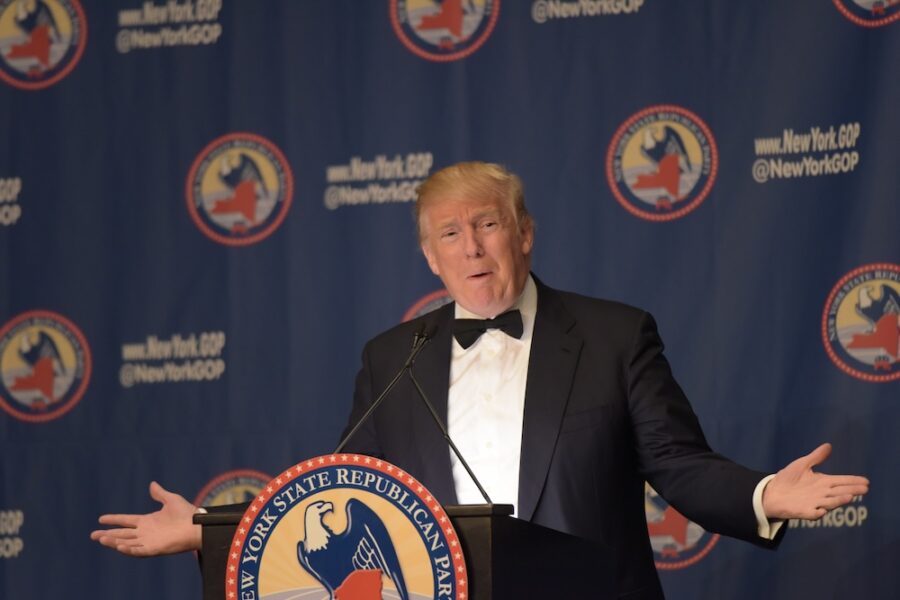Politics
NEW: Shocking Report Reveals Young Americans Are Flocking To The GOP

A recent report from the Pew Research Center unveiled a major shift in the political landscape of the United States, with young Americans increasingly aligning with the Republican Party. The comprehensive analysis, spanning from 1994 to 2023, explored the evolving partisan coalitions and demographic changes shaping the nation’s political affiliations.
For decades, party identification among U.S. voters has been influenced by a variety of factors, including gender, race, ethnicity, and religious affiliation. While these traditional dividing lines remain influential, the latest Pew Research Center report showed a new and surprising trend: a growing number of young voters are gravitating towards the GOP.
The Pew report showed that the share of young voters (ages 18 to 24) who identify with or lean towards the Republican Party has seen a notable increase. The shift is a departure from previous trends, where younger generations were more inclined to support the Democratic Party. In the past, younger voters have been a reliable base for Democrats, often driven by progressive stances on social issues and a desire for change. However, new data suggests that this demographic is undergoing a transformation, potentially reshaping the future of American politics.
New York Times’ chief political analyst, Nate Cohn, wrote on X, “Perhaps the most important poll you’ve never heard of came out today: the Pew NPORS study, a large mail survey with financial incentives and a 30% response rate. It’s important enough that I had to open it when the email arrived.”
The survey is important because it's used as a 'benchmark' — its results are used as targets for weighting by other polls. Pew uses it to weight their usual surveys, and other polls (like CNN/SSRS, KFF, Ipsos) do too.
(We don't use it, but I do compare it to NYT/Siena data)— Nate Cohn (@Nate_Cohn) July 8, 2024
The report’s findings revealed several important trends. Firstly, while younger voters still lean Democratic overall, there has been a significant increase in the proportion of young Republicans. The shift is most pronounced among White young adults, who have shown a growing preference for the GOP.
Secondly, the report showed that young voters without a college degree are more likely to align with the Republican Party. Economic concerns, such as job opportunities and financial stability, appear to play a crucial role in this shift. In contrast, young college graduates remain more likely to support the Democratic Party.
The results overall and by subgroups RVs come very close to a compilation of the last five NYT/Siena polls, which add up to a similar n=5000 sample size. pic.twitter.com/eEoO1eKGuD
— Nate Cohn (@Nate_Cohn) July 8, 2024
Geographic factors also influence young voters’ political affiliations. Young adults in rural areas are increasingly identifying as Republicans, while their urban counterparts tend to support Democrats. Additionally, the growing racial and ethnic diversity among young voters has impacted both parties, although the Democratic Party still enjoys greater support among minority youth.
The gender gap in partisan identification remains significant. Young men are more likely to align with the GOP compared to young women, who predominantly support the Democratic Party. This divide is particularly evident among never-married individuals, with a larger proportion of never-married men identifying as Republicans.
As the November presidential election approaches, only 19% of Americans consider their democracy a strong model for other nations, per an April Pew Research Center survey. The prevailing sentiment, shared by 72% of respondents, is that while U.S. democracy once set a positive example, it has failed to do so recently. An additional 8% believe it never served as a good model. This viewpoint is more prevalent in the U.S. than abroad, where only 40% of adults from 34 different countries surveyed in 2024 agree with this perspective.

